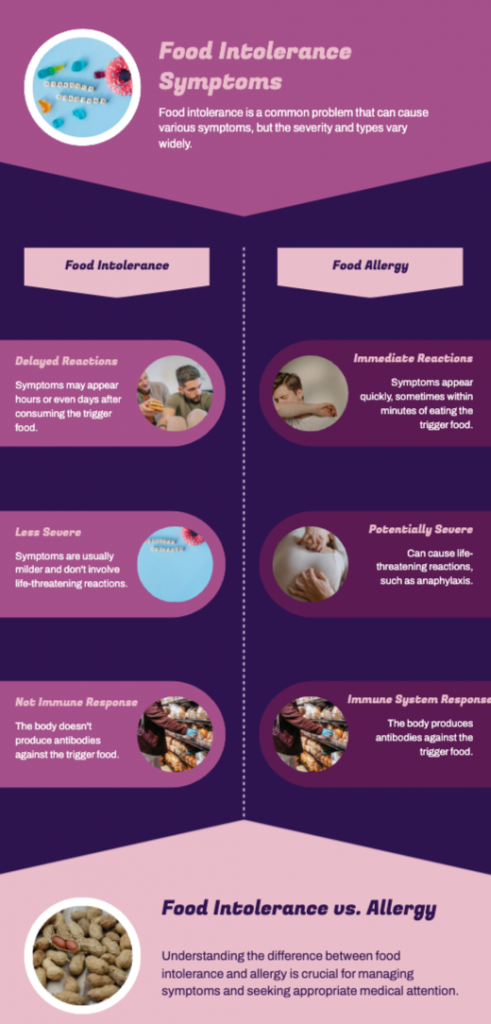Food sensitivities are increasingly recognized as a common issue that affects many people. Unlike food allergies, which can trigger severe immune responses, food sensitivities often lead to milder, delayed reactions. Here’s a closer look at the basics of food sensitivities and how they can impact your health.

What Are Food Sensitivities?
Food sensitivities occur when the body has difficulty digesting certain foods, leading to various symptoms. This can happen due to a lack of specific enzymes, reactions to food additives, or the immune system’s response to certain food components. Common culprits include gluten, dairy, soy, and certain fruits and vegetables.
Symptoms to Watch For
Symptoms of food sensitivities can vary widely and may include:
- Bloating and Gas: These are often the most common complaints.
- Digestive Issues: Diarrhea, constipation, or stomach cramps can occur after consuming trigger foods.
- Fatigue: Many people report feeling unusually tired after eating certain foods.
- Headaches: Some individuals experience migraines or tension headaches linked to specific food items.
- Skin Reactions: Rashes, eczema, or acne flare-ups can sometimes be tied to food sensitivities.

How to Identify Food Sensitivities
Identifying food sensitivities can be challenging, but there are several approaches:
- Elimination Diet: This involves removing suspected foods from your diet for a few weeks and then gradually reintroducing them to observe any reactions.
- Food Journaling: Keeping a detailed food diary can help you track what you eat and correlate it with symptoms.
- Consulting a Professional: A healthcare provider or nutritionist can help guide you through the process and recommend tests if necessary.
Managing Food Sensitivities
Once identified, managing food sensitivities involves avoiding trigger foods and finding suitable alternatives. Many people benefit from:
- Reading Labels: Being vigilant about food labels can help you avoid hidden allergens or additives.
- Finding Substitutes: There are often alternatives available for common allergens, such as almond milk instead of dairy or gluten-free grains.
- Focusing on Whole Foods: Emphasizing fresh, whole foods can help minimize exposure to potential triggers.
Conclusion
Understanding food sensitivities is crucial for managing your health and well-being. By recognizing symptoms, identifying triggers, and making mindful dietary choices, you can lead a healthier life while enjoying a diverse range of foods. If you suspect you have a food sensitivity, consider seeking professional advice for tailored guidance.

